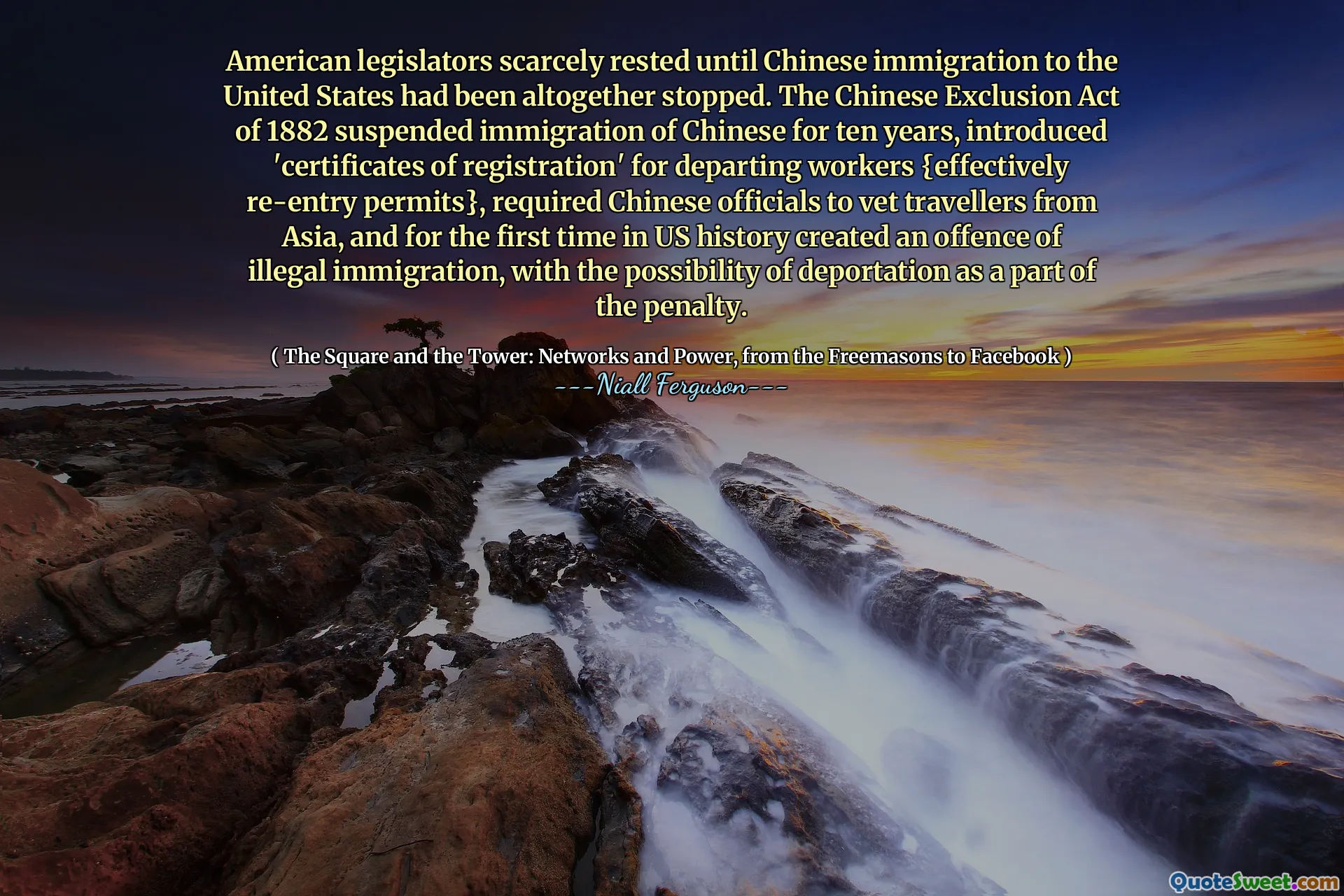
American legislators scarcely rested until Chinese immigration to the United States had been altogether stopped. The Chinese Exclusion Act of 1882 suspended immigration of Chinese for ten years, introduced 'certificates of registration' for departing workers {effectively re-entry permits}, required Chinese officials to vet travellers from Asia, and for the first time in US history created an offence of illegal immigration, with the possibility of deportation as a part of the penalty.
American lawmakers were relentless in their pursuit to halt Chinese immigration to the United States. The Chinese Exclusion Act of 1882 was a significant step, as it not only banned Chinese immigration for a decade but also implemented new regulations such as requiring 'certificates of registration' for workers seeking to return. This legislation marked a notable shift in U.S. immigration policy, establishing illegal immigration as a crime that could lead to deportation.
Furthermore, the act mandated that Chinese officials must examine travelers from Asia, reflecting a broader pattern of increasing scrutiny and restrictions on immigration. This legislation was pivotal as it marked the first time the U.S. actively penalized illegal immigration, illustrating the growing tension and discrimination against Chinese immigrants during that era.











